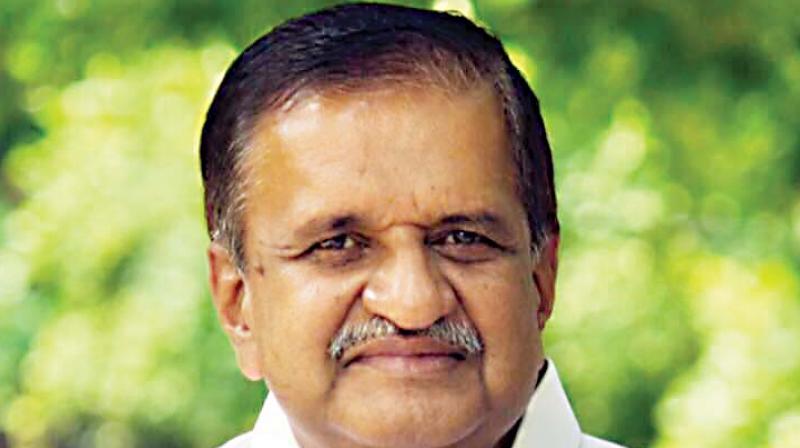The Gauri Lankesh I knew, selfless, committed
Lankesh chose his own story, Ellindalo Bandavaru ('Those who came from somewhere'), prepared the script and directed it.

Gauri was the daughter of P. Lankesh, one of the finest writers in Kannada and a firm believer in the socialist philosophy of Ram Manohar Lohia.
I came to know Lankesh due to a strange coincidence. Due to the influence of Communist leader late M.K. Bhat (who was a nuclear scientist and then General Secretary of CPI(M) Karnataka Unit), I became part of the Student Federation of India (SFI) in the State. With the Dravidian Movement in Tamil Nadu entering the cultural field and cinema helping the DMK to come to power in that state, the CPI(M) too decided to venture into these fields.
Jayapal Menon, an advocate from Chittur in Palghat district of Kerala was assigned this job of making a foray into cinema and I was made the Managing Director of Navashakthi Films Pvt. Ltd in 1980. Jayapal Menon was keen that Lankesh, who had already made an off beat, award winning film called Pallavi, should direct our maiden film production in Kannada.
Lankesh chose his own story, Ellindalo Bandavaru ('Those who came from somewhere'), prepared the script and directed it. At that time, Lankesh had resigned as an English lecturer at Bangalore University and was living in Basavanagudi in a rented house with his wife Indira and three young children. The film, Ellindalo Bandavaru, was shot at Kuppegala village in Mysore district in the farmhouse of Y.Mahesh, a close associate of Chief Minister Siddaramaiah and well known Kannada writers Devanoor Mahadeva and Late Alanahalli Krishna. After completion of the film, we did not find any distributor at Gandhinagar and we were a worried lot.
It was then that Lankesh was offered a chance to write a regular weekly column in Prajavani, a Kannada daily on current political issues. The Janata Party government led by Morarji Desai was collapsing like a pack of cards and Lankesh used this scenario to caricature the whole set of Janata Party leaders. We were informed that the circulation of Prajavani increased by several thousand on the days of his column! But abruptly his column was stopped as the management probably thought it was getting ‘too hot’. Lankesh was bitter and disappointed.
He was probably finding it difficult to run his family without a proper source of income and came up with the idea of launching his own weekly newspaper on the lines of Shankar’s Weekly of Bombay. Thus, Lankesh Patrike was born.
It was a huge hit from day one. From the initial sales order of 2,000 copies, Lankesh Patrike witnessed rapid growth with the sales going upto 1,50,000.
Our stalled film, Ellindalo Bandavaru, too got released some four weeks after Lankesh Patrike’s launch. The film received a lot of critical acclaim, and won the Filmfare and State awards. The anti-establishment and anti-government stand of the weekly unnerved the Gundu Rao-led Congress government, with then Finance Minister Veerappa Moily deciding not to extend the tax exemption, as promised. This episode made Lankesh resolve to expose the Gundu Rao government in his weekly.
Lankesh Patrike played an important role in installing the first non Congress government in Karnataka in 1983 with its support to the formation of a Janata Kranti Ranga government led by Ramakrishna Hegde. People used to wait for Tuesday morning to buy the paper at stalls. Young writers and poets were given space and promoted.
After the death of her father, the task of running the weekly fell on Gauri, but after a few weeks, there was a dispute with her brother Indrajit. Gauri had already registered a new title, Gauri Lankesh Patrike, and eventually settle issues with her brother peacefully, including the properties of Lankesh.
Gauri followed in the footsteps of her father with her commitment to support all those persecuted by the state and Hindutva forces making her popular among these groups. To know her credibility and integrity, one should know the facts. When S.M. Krishna was CM, many journalists got G-Category sites from the chief minister’s discretionary quota of BDA sites and among them were Indrajit Lankesh and Gangadhar Kushtagi, his weekly's reporter. If I recollect correctly, Gauri wrote against her own brother regarding this unethical act. Again, one day I got a phone call from her that her brother was lobbying for an MLC nomination in the Siddaramaiah government. I was already in the race as the main contender from the party. To my surprise, I found Indrajit lobbying in New Delhi with the Congress High Command.
When the High Command nominated me, Gauri was extremely jubilant, as she felt that I deserved the position as a long serving Congressman.
A few days before she was killed I met her with Vimala, a CPI(M) activist at Vidhana Soudha and found that she was trying to meet the CM. During the two hours we spent with the CM, she sought closure in the investigation into Kalburgi's murder. At the end, she requested the CM to direct governmental departments to issue advertisements for the Deepavali special issue of her weekly, which she was bringing out for the first time due to financial difficulties.
The CM told her to wait till his Principal Secretary returned from his foreign visit on September 4. And then she was shot dead. She told me a lot of things. “Mohan, you should know that after my father’s death, there is no male member in our family except Indrajit. He, his wife and two children along with Kavitha and her daughter and our mother Indira meet often and we are all happy to be together.”
She had a lot of affection for Indrajit though she had differences with him. She would get annoyed when people asked about her brother’s political views. That was Gauri, a selfless individual who died for the ideology she believed in.
The writer is a member of the Karnataka Legislative Council

